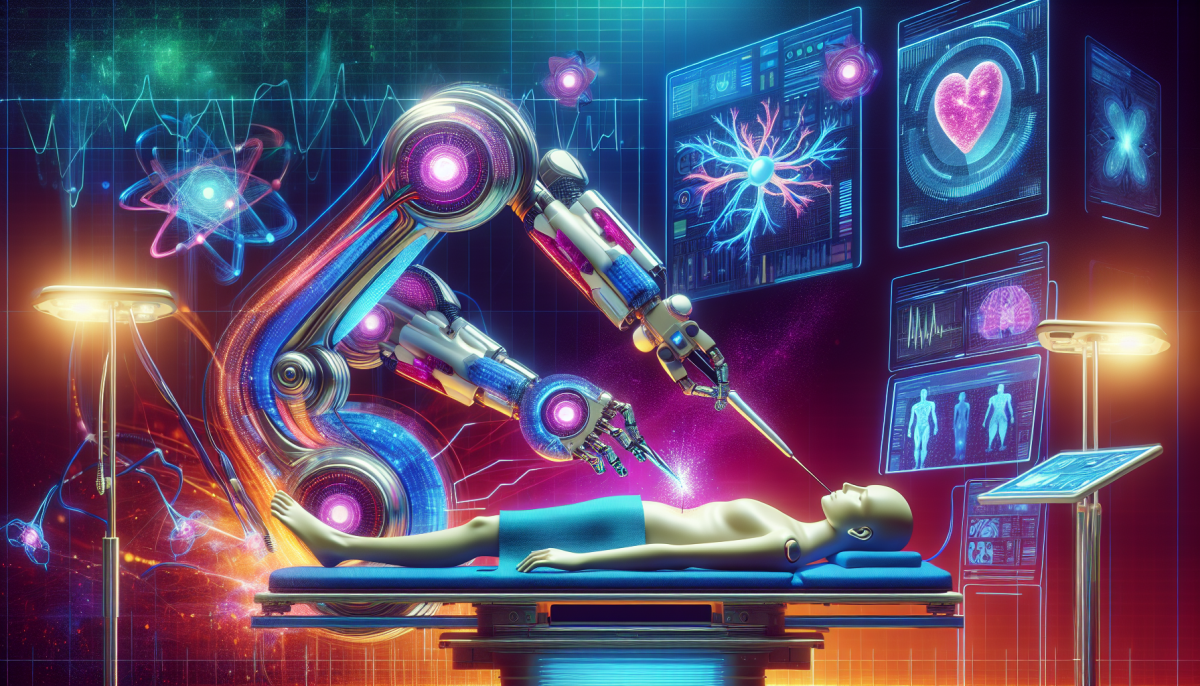AI is quickly becoming a game-changer in healthcare. From diagnostics to patient care, it’s making things faster and more efficient. Imagine a tool that can sift through countless patient records in seconds to help doctors make better decisions. That’s what AI is doing right now - helping healthcare professionals work smarter, not harder.
One of the coolest ways AI is being used is in early diagnosis. AI systems can analyze images from X-rays or MRIs and spot things that might be missed by the human eye. This means issues can be caught earlier, leading to better outcomes for patients. Plus, it’s saving doctors a ton of time, allowing them to focus on what they do best: caring for patients.
But AI isn't just about diagnosis. It’s also helping personalize treatment plans. By looking at data from various sources—like genetic information and lifestyle habits—AI can suggest the best treatment options tailored to each individual. This personalization can make a huge difference in how effective a treatment is and how quickly a patient recovers.
And let’s not forget about administrative tasks. AI tools are streamlining processes like scheduling appointments and managing patient records. This reduces the paperwork burden on healthcare staff, letting them spend more time with patients. Happy staff means happier patients, and that’s a win-win!
Transforming Patient Care with Smart Tech
When we think about healthcare, we often picture doctors in white coats or bustling hospital corridors. But the real revolution is happening behind the scenes with smart technology. This tech is not just a trend; it's reshaping how we manage health and enhance patient care.
Imagine a world where your health data seamlessly flows between your devices and your doctor’s office. Wearable tech, like fitness trackers and smartwatches, is at the forefront of this change. They collect real-time data—like heart rates and sleep patterns—helping healthcare providers make informed decisions. This data can lead to personalized treatment plans that fit your lifestyle, rather than a one-size-fits-all approach.
Telemedicine is another game changer in patient care. With smart tech, you can consult with a physician from the comfort of your home. This not only saves you time and travel hassles but ensures you can get quick advice on your health concerns. No more waiting weeks for an appointment—just a few taps on your device and you’re connected to the help you need.
Smart medical devices, like smart inhalers or diabetes monitors, are also improving patient outcomes. These devices provide reminders, track usage, and even alert your doctor if something seems off. It’s like having a personal health assistant by your side, ensuring you stay on track with your treatment.
Improving Diagnosis and Treatment Efficiency
In the world of healthcare, making quick and accurate diagnoses can be a game-changer for patient care. AI is stepping in to help doctors spot conditions faster than ever. Imagine an AI system that can analyze thousands of medical images in seconds or sift through countless patient records to identify patterns that might go unnoticed. This means a quicker diagnosis for patients, which can lead to earlier treatment and better outcomes.
One area where AI shines is in interpreting medical tests. Take radiology, for example. AI algorithms can assist radiologists by flagging potential issues in X-rays or MRIs, allowing the doctors to focus on the most critical findings. This not only speeds up the process but also reduces the chances of human error, ensuring patients receive the right care when they need it.
Moreover, AI can help personalize treatment plans for patients. By analyzing a patient's unique genetic makeup and medical history, AI tools can suggest targeted therapies that are more effective, minimizing trial and error with medications. This approach means that patients are not only treated faster but are also more likely to receive treatments that work best for them.
With AI handling some of the heavy lifting, healthcare professionals can spend more time with their patients, building relationships and understanding their needs. This human touch is vital in care. While technology is transforming diagnosis and treatment, the heart of healthcare remains the connection between caregivers and those they care for.
Personalized Medicine Powered by AI
Personalized medicine is all about you. It's a healthcare approach that tailors treatment specifically to an individual’s unique characteristics, including genetics, environment, and lifestyle. With the help of AI, this practice is becoming smarter and more accessible than ever. Imagine a health plan that's designed just for you, based on data that makes sense of your personal health story.
AI steps in to analyze massive amounts of data quickly and accurately. It can look at your genetic makeup and medical history, comparing it with countless other cases. This means doctors can spot patterns and predict which treatments are likely to work best for you. No more one-size-fits-all solutions. The days of guessing which medication might help are fading away!
One exciting application is in cancer treatment. AI can help identify specific genetic mutations in tumors, guiding oncologists to the most effective therapies for each patient. This tailored approach not only improves outcomes but also reduces the chance of unnecessary side effects from treatments that aren’t likely to be effective.
But it’s not just limited to serious conditions. For chronic illnesses like diabetes or heart disease, AI can continuously monitor your health data, helping create lifestyle and medication plans that adapt as your needs change. This proactive approach can empower you to manage your health more effectively.
In a nutshell, personalized medicine powered by AI is transforming healthcare. It’s about helping you feel understood and ensuring that you get the best treatment possible. As the technology keeps advancing, the future looks bright for patient care, giving you the chance to live your healthiest life.



